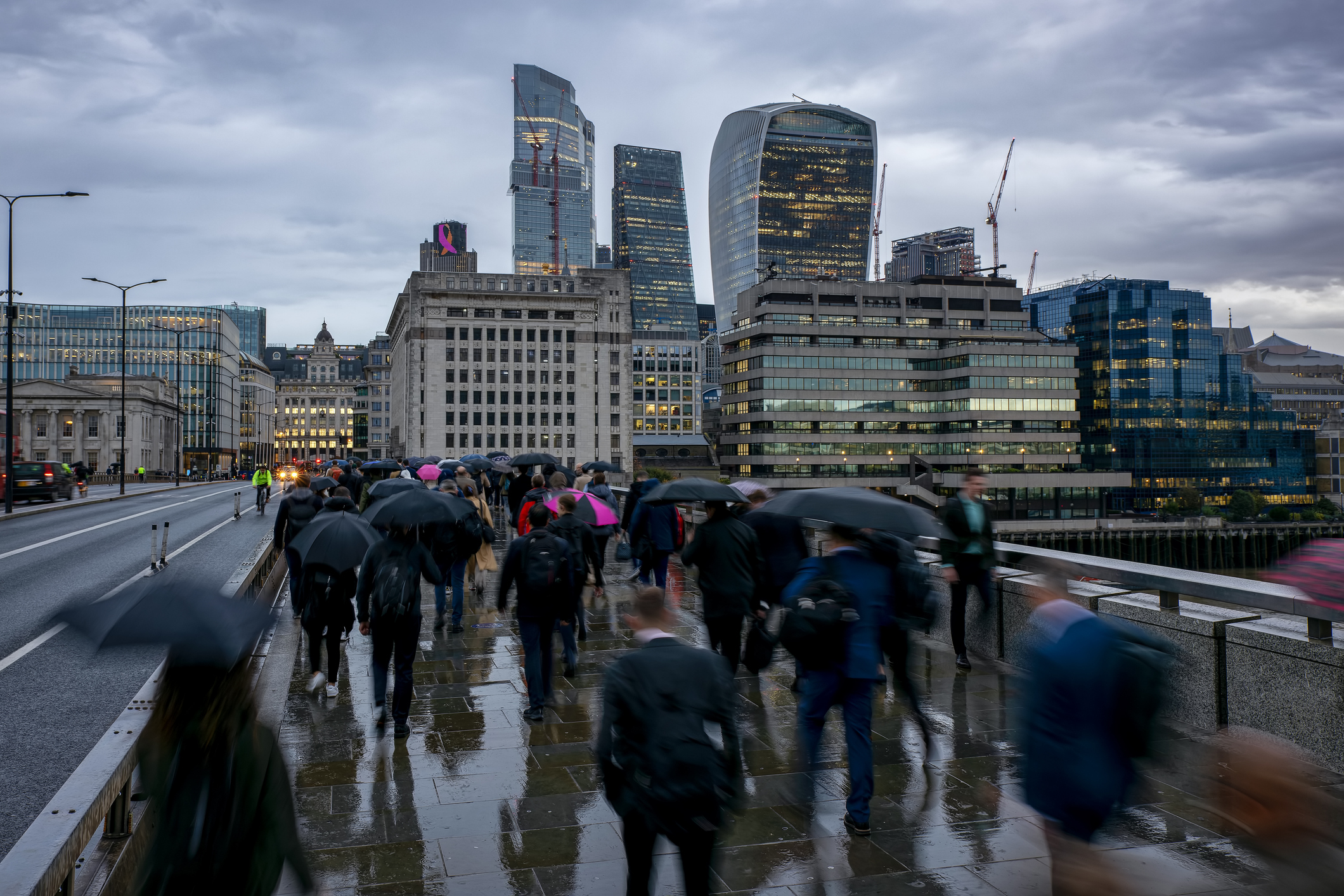Wages grow at slowest pace since 2022
UK wages grew at their slowest rate in two years, between April and June. What does this mean for the economy?


Get the latest financial news, insights and expert analysis from our award-winning MoneyWeek team, to help you understand what really matters when it comes to your finances.
You are now subscribed
Your newsletter sign-up was successful
Want to add more newsletters?

Twice daily
MoneyWeek
Get the latest financial news, insights and expert analysis from our award-winning MoneyWeek team, to help you understand what really matters when it comes to your finances.

Four times a week
Look After My Bills
Sign up to our free money-saving newsletter, filled with the latest news and expert advice to help you find the best tips and deals for managing your bills. Start saving today!
Wages are rising at their slowest pace since summer 2022, data from the Office for National Statistics showed, indicating inflation might be slowing as one of its biggest drivers gives up ground.
Average pay excluding bonuses climbed 5.4% in the three months to June, falling from 5.7% on an annual basis between March and May. Annual wages including bonuses were 4.5%, down from 5.7% the month before and a higher drop than expected – though this was partly due to the data accounting for NHS bonuses from the year before. After inflation wages were up 1.6% including bonuses and 2.4% excluding bonuses.
“[Wages] are not running quite so hot as they were, and we’re likely to have to contend with slightly higher inflation in the coming months,” says Sarah Coles, head of personal finance, Hargreaves Lansdown. “However, the fact real wages are still growing means more people have escaped a cost-of-living crisis and are coming up for air.”
MoneyWeek
Subscribe to MoneyWeek today and get your first six magazine issues absolutely FREE

Sign up to Money Morning
Don't miss the latest investment and personal finances news, market analysis, plus money-saving tips with our free twice-daily newsletter
Don't miss the latest investment and personal finances news, market analysis, plus money-saving tips with our free twice-daily newsletter
“There’s plenty to celebrate in these figures, but for millions of people, it’s all a bit premature,” Coles adds. “For those on lower incomes, the cost-of-living crisis still hasn’t loosened its grip, and it’s a struggle to make it to the end of the month.”
What does wage growth mean for interest rates?
Data showed the unemployment rate dipped on an annual and quarterly basis to 4.2%, while vacancies remained 11% higher than in 2020.
This means employees “still have considering bargaining power” so there are “lingering concerns [wage growth] could ignite again,” says Susannah Streeter, head of money and markets, Hargreaves Lansdown.
Slowing wage growth is good news for interest rates, as a hot labour market contributes significantly to rising prices. But even though the pace of growth is now slowing, it’s likely still faster than what the Bank of England would feel comfortable with to lower interest rates.
“It still seems highly likely there won’t be another rate cut in September,” Streeter added.
Indeed, “today’s job numbers have all but ended hopes of a further interest rate cut for a few months,” adds Rob Morgan, chief investment analyst at Charles Stanley.
“While goods inflation has been largely contained for the time being, services inflation continues to run hot, driven by higher wages. An employment market taking a long time to balance strengthens the case of the MPC hawks who want to wait for more evidence before they reduce rates any further,” he added.
Get the latest financial news, insights and expert analysis from our award-winning MoneyWeek team, to help you understand what really matters when it comes to your finances.
Nic studied for a BA in journalism at Cardiff University, and has an MA in magazine journalism from City University. She has previously worked for MoneyWeek.
-
 Last chance to invest in VCTs? Here's what you need to know
Last chance to invest in VCTs? Here's what you need to knowInvestors have pumped millions more into Venture Capital Trusts (VCTS) so far this tax year, but time is running out to take advantage of tax perks from them.
-
 ISA quiz: How much do you know about the tax wrapper?
ISA quiz: How much do you know about the tax wrapper?Quiz One of the most efficient ways to keep your savings or investments free from tax is by putting them in an Individual Savings Account (ISA). How much do you know about ISAs?
